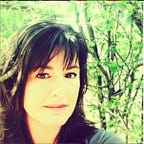Please Don’t Let Popular Culture Destroy Science Fiction
A review of Chuck Wendig’s novel, Wanderers.
Literary critics praise Chuck Wendig’s dystopian novel, Wanderers as an “examination of America” and symbolic look into “American’s soul”, yet it is more a representation of the modern American phenomenon of popular culture’s infiltration into science fiction. The dystopian plot is overwrought with prototypical characters and predictable events. Good and bad guys mirror the headlines of the New York Times. Subplots frequently resemble exhortations one might hear any day tuning into MSNBC.
The novel follows a similar plot to Stephen King’s The Stand. A random group of Americans one by one turn into a parade of sleepwalkers, heading towards some unknown destination as a fast moving plague threatens to destroy the world. Within a backdrop of political division, (conservative climate change deniers/hard core Christians on one side and cautious liberal science believers on another), family members, CDC scientists and an occasional British rocker race to save mankind, all the while protecting the sleepwalkers from various rednecks and close-minded racist law enforcement officers.
Wendig’s novel is full of predictability. Once you understand the writer’s perspective, you will not be surprised when the political villain closely resembles Trump and the beleaguered, yet steadfast, leader of the county could easily be Hillary Clinton. Evil characters resemble Facebook memes: gun-toting Neo-Nazis and good ole’ boy white supremacists. And the crew saving the world from the apocalypse could easily be the cast of NBC’s latest sitcom/drama. The story is dotted with the expected moments of female heroism, much like the next “you go, girl” Dove ad (although with much more blood and violence). For a final cherry on the top, the catalyst of the world’s demise is, of course, climate change.
Unfortunately, this leads to yet another story resembling more everyday life (or a hyperbolic replica of everyday life), then the fantastical spirit that makes sci fi so appealing and nuanced. Fans of Wendig’s novel may argue that all dystopian works are grounded in the social and political realities of their time. Yet, great dystopian science fiction transcends obvious similarities to contemporary popular culture.
In an article titled, What is the Purpose of Science Fiction Stories?, author Zach Berkson states,
“A good science fiction work posits one vision for the future, among countless possibilities, that is built on a foundation of realism. In creating a link between the present and the future, science fiction invites us to consider the complex ways our choices and interactions contribute to generating the future.”
It is this complexity that is at the heart of good science fiction, for it brings nuance. Unforeseen details that shake up expectations are essential to science fiction. In contrast, works overly dependent upon references to popular culture risk omitting the very things that provide this distinction. When it comes to the political leanings of the reader, this should be irrelevant. If the writer is dependent upon the reader sharing a political proclivity, they risk leaving half their creative effort at the door — expecting the reader to fill in the blanks based on a common set of beliefs.
This is not to say that politics has no place in the genre. In Orwell’s archetypical dystopian novel 1984, he drew upon events of his time for inspiration, yet the product was shocking and new. Big Brother is not a mere version of Stalin. He is a larger more complex symbol of an oppressive society. The protagonist, Winston Smith, is not a replica of the idealized Soviet factory worker, but an everyman who secretly rages against the popular ideology of the time. Orwell’s vision of society extended beyond its resemblance to Soviet communism; it was complex and unexpected.
Science fiction should surprise. It should amaze and bewilder. It should make a reader question their beliefs and reassess their thoughts, rather than motivate them to retweet a politician’s rant on Twitter. Orwell’s dystopian novel was a model for self-analysis, a behavior not often lauded in our culture of finger pointing. Orwell was fortunate to write in a time devoid of social media. Although his contrary approach did rankle some feathers, today such antagonist literature would undoubtably suffer without sufficient obeisance to popular culture. And it’s a shame. For we need more nuance today, in life and in art.
Yes, it is possible that my high expectations for the novel biased my opinion. Isn’t Wendig lauded by critics as the “next Stephen King”? Maybe my disappointment stopped me from enjoying the novel for what it is — a moderately entertaining story that could very well be featured soon in my Netflix queue. A predictable tome that fits neatly with my assumptions of the world; a thing highly digestible that goes down smooth. Something that would assure the heart of a highly educated liberal white woman, in between my viewings of PBS Newshour and The Good Place. But then I remember when I first read Ray Bradbury’s The Martian Chronicles, William Golding’s Lord of the Flies, and The Giver by Lois Lowry, and I demanded more.
